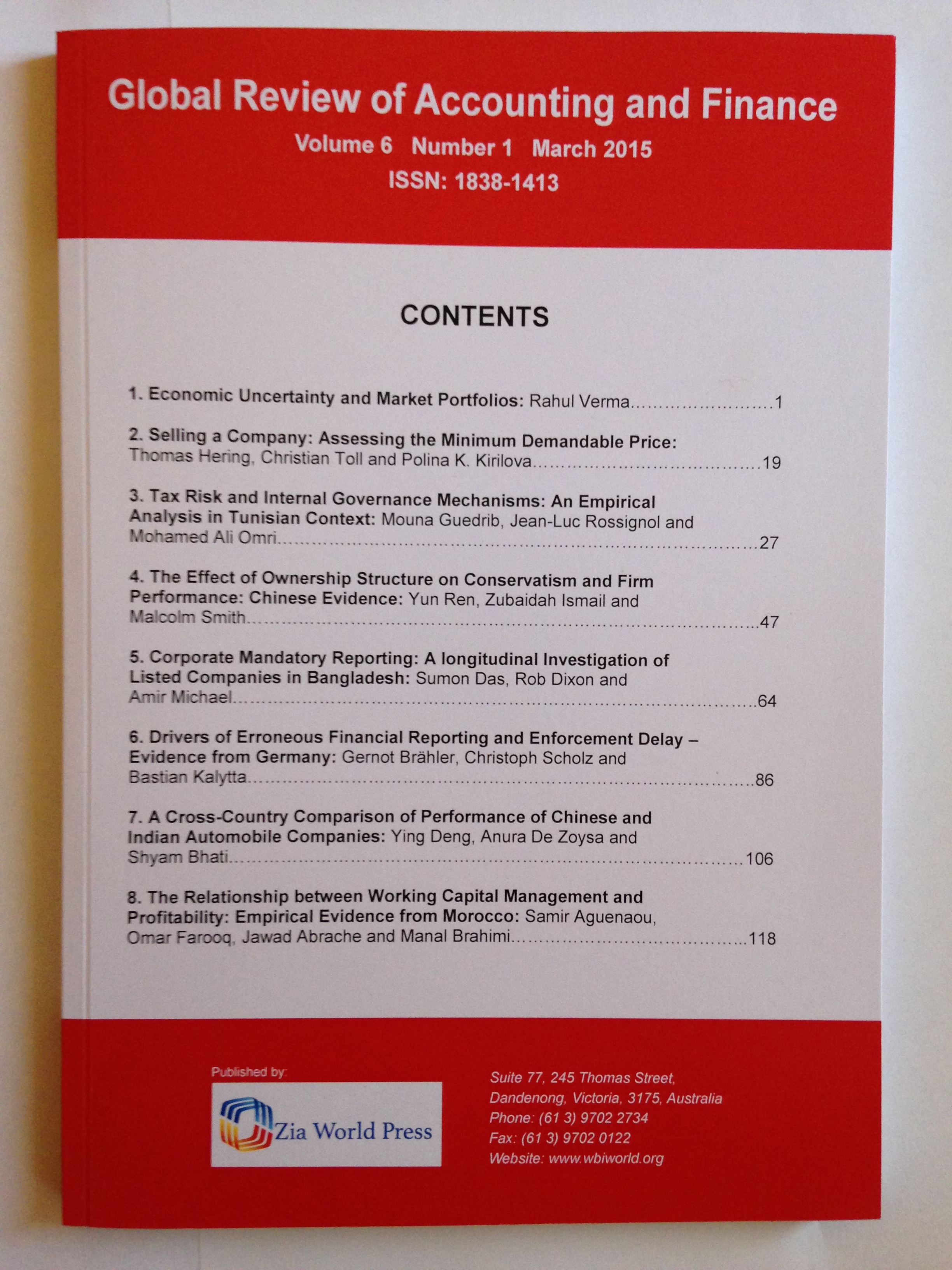Pages
1 – 14
Author: James Sunday Kehinde
The study is an examination of the relationship between the shareholders’ wealth maximization objective of the firm and the management goal of increase remuneration and satisfaction. It is of note that this relationship do lead to agency problem-the age long dichotomy of corporate and personal objectives differences within the firm. The agency dichotomy is a subject of corporate governance. The study uses the agency theory, information asymmetry theory and the capital structure theory to examine the shareholders’ wealth maximization and the management personal wealth maximization (satisfaction). The study apply both survey and expost-facto research design technique, using structured questionnaire and secondary data from the financial report of selected firms of the firm.. The data span a period of 10years. The simple linear regression analysis, correlation coefficient, and t-test were used for the analysis of data collected. Findings from the study revealed that organization assets portfolio and leverage will impact on the shareholders’ wealth as measured by market value of the firm. However, dividend payment and timing of payment will more affect the value of the firm. Moreover, it was revealed that due to the asymmetric information dichotomy between the firm’s owners and management, hence management is able to pursue their personal satisfaction at the expense of the shareholders’ wealth maximization, The study recommended that business organization should strike a balance between investments in assets, Dividend payment and leverage as they influence the market value of the firm and hence the shareholders wealth. Shareholders should also seek more information about their firm than the statutory information in the financial report.
Pages
15 – 34
Author: Jinning Hong, Keith W. Glaister and Jane Frecknall-Hughes
This study proposes a framework for mapping tax strategies in the developmental and sequential FDI decision process. The authors examined the relative importance of the stages of the FDI decision process with and without tax considerations for a sample of 192 UK MNEs. The stages of identifying investment opportunity, and the FDI legal and management structures are found to be important to the decision process when tax effects are considered. The findings suggest that availability of foreign partners is an important factor to the ownership and entry mode decisions. A favourable tax regime does not distort international organisational structure. Tax is considered both before and after the strategic decisions are made.
Pages
35 – 53
Author: Bishnu Prasad Bhattarai
The study examines the impact of bank specific variables and macroeconomic variables on the performance of commercial banks of Nepal over the period of 2011 to 2016. The dependent variable is bank performance which has been specified in terms of ROA while the independent variables are bank specific (default risk, cost per loan assets and capital adequacy ratio), and macroeconomic variables (annual growth of gross domestic product, exchange rate and inflation). To test the impact of importance of bank specific and macro-economic variables on bank performance regression models have been estimated. This study concludes that the commercial banks profitability in Nepal is mainly influenced by cost per loan assets. The macroeconomic variables are not significant and hence there is no evidence that external forces have impact over bank performance.

